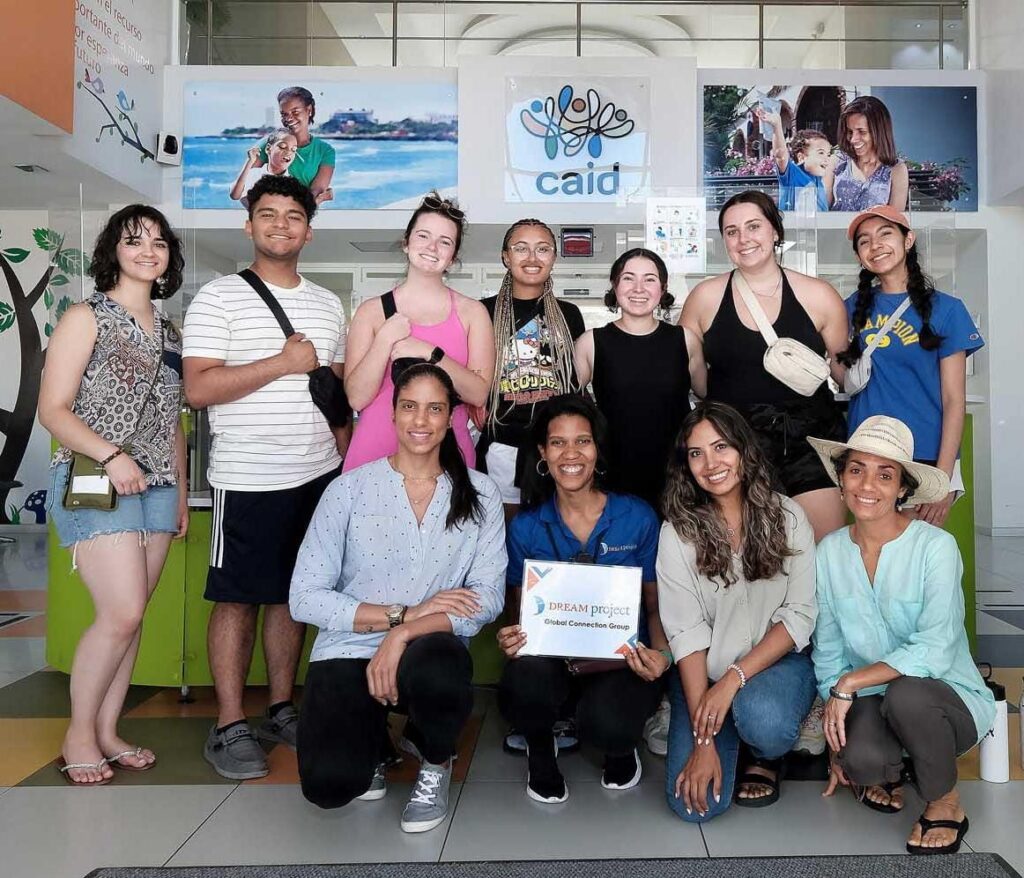
Hey there! My name is Devin, and I’m a psychology and speech-language pathology major at University of the Pacific. Over the summer, I had the amazing opportunity to travel to Cabarete in the Dominican Republic through an internship with TherapyAbroad. They connected me with the DREAM Project, an organization that provides free therapy services to children and education programs for low-income teenagers and young adults.
I heard about the internship through a friend in the speech-language pathology program at University of the Pacific. She was going to Belize in the summer and informed me about the opportunity to travel abroad and gain clinician experience. Although the price was an investment, I was able to fund it through my Powell scholarship’s study abroad fund. There were a lot of countries to choose from, but I decided on the Dominican Republic because I wanted to improve my Spanish. A lot more doors open in SLP if you’re bilingual, and Spanish is especially beneficial to know in California.


Exploring the Dominican Republic
The trip itself lasted about two weeks, but it was a mix of vacationing and working at the camp. We arrived in the capital, Santo Domingo, and explored the city for two days. We had an itinerary and guides, so we learned a lot about the history of the DR and visited cathedrals and statues of historical figures, like one of the founding fathers of the Dominican Republic, Juan Pablo Duarte.
Then we left for Cabarete, where we stayed for the rest of the trip. From Cabarete, we would travel out to other cities like Punta Cana, Puerto Plata and Sosúa. Our hotel in Cabarete was on the beach, so we saw many pretty sunsets and ate a lot of really good food.



I tried a plantain-based Dominican dish called “mofongo,” and even had plantains inside of sushi. There was a lot of fried fish, pasta and chicken, and every meal seemed to have rice, beans and chinola (passion fruit) fruit juice. I discovered Helados Bon ice cream, which was amazing, and had other delicious desserts like bread pudding.


Working at the speech clinic
There were six other SLP students from across the United States in the group. We were in various stages in college and knew different levels of Spanish. In scenarios where we couldn’t fully understand our client or vice-versa, we helped each other out or our bilingual SLP guides translated for us.
We didn’t have any formal training, so it was a learn-as-you-go process. Lucky for me, I had already taken a few SLP classes at Pacific. They taught me how to be patient and how to make creative activities to keep my clients engaged. These lessons were useful to draw from during the internship.
My fellow student clinicians and I arrived at DREAM at 9 a.m. every weekday and prepared for our therapy sessions. We created four stations for our clients: Hora de Cuentos “Storytime,” Multisensory station, STEM and Gross Motor. Our goal was to engage them in fun activities that helped with their therapy processes.

After those stations, we broke off and worked individually with our own clients. My client was a six-year-old with a stutter, and we focused on pronunciation and fluency. Conveninetly, I just finished a course on stuttering in the Spring at Pacific, so I could implement what I learned during our sessions. In one of our activities, we worked on her pronunciation of the letter “s.” Each time she got it correct, I gave her a block to add to a castle she was building. Other times, we used flashcards or my laptop.
At the end of our clinics, I held a parent-teacher conference and gave them advice on how to continue therapy activities at home. The goal was to make therapy fun and inclusive so she would be willing to continue with her parents on her own.


Why you should study abroad
I highly recommend studying abroad, but it’s important to understand and be respectful of cultural differences. It can be intimidating and uncomfortable if you’re not a fluent speaker, but practice is the only way you’re going to improve.
There were times I would get nervous or afraid that I would make a fool of myself. Through experience, I’ve learned that people living in the countries you visit appreciate when you make an effort to speak their language or immerse yourself in their culture even if it’s not perfect. The fact that you’re trying says a lot and goes a long way.
Overall, the trip was everything I could have asked for and more. I was able to earn clinician experience while immersing myself in a new and unique culture. The Dominican Republic was a beautiful place to explore, and it was fulfilling knowing I was making a difference in children’s lives.